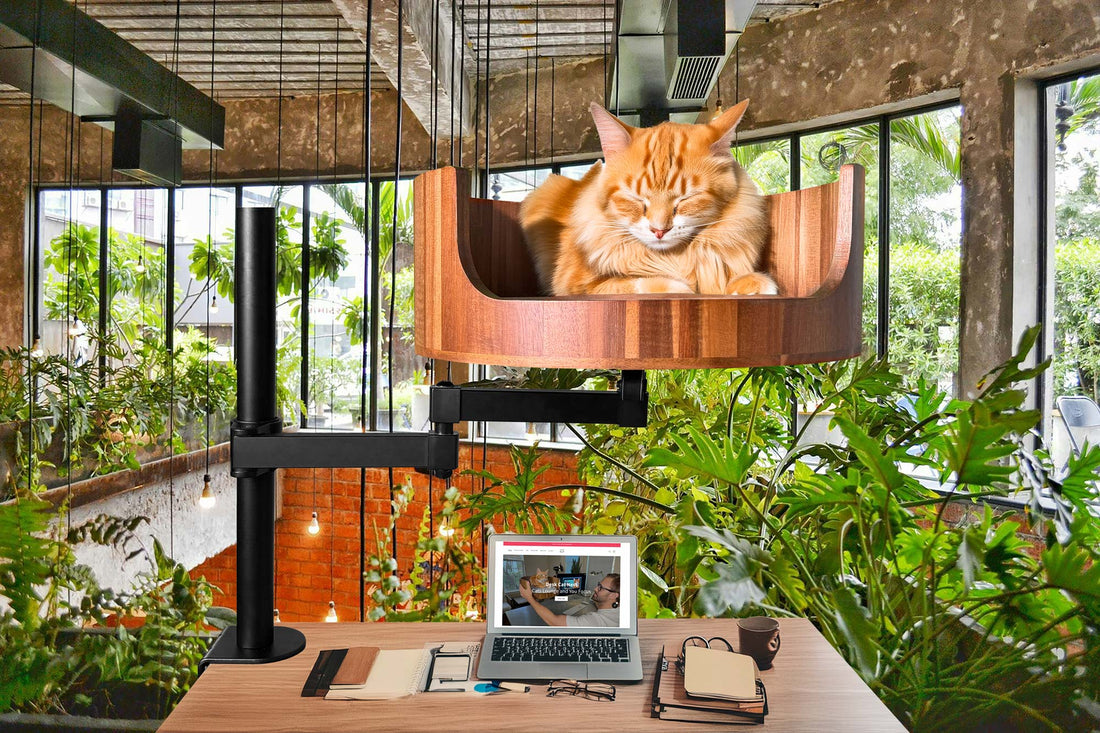
Why Does My Cat Breathe Fast? Understanding the Causes
Share
Have you noticed your cat breathing fast and wondered what could be causing it? Understanding why your feline friend is taking quick breaths can be crucial in ensuring their health and well-being. In this article, we will explore the various reasons why cats may breathe rapidly, from stress and anxiety to underlying medical conditions.
Cats are known for their calm and composed demeanor, so when they start breathing fast, it can be a cause for concern. Rapid breathing, also known as tachypnea, can be a sign of respiratory distress or other serious health issues. We will delve into the common reasons why cats breathe fast, such as heatstroke, heart problems, or asthma, and provide tips on how to monitor your cat's breathing patterns and when to seek veterinary care. Understanding the causes of rapid breathing in cats can help you take proactive steps to ensure your furry companion stays healthy and happy.
1. Rapid breathing in cats can be a sign of stress, pain, or an underlying medical condition.
2. Common causes of fast breathing include infections, heart problems, and respiratory issues.
3. Monitoring your cat's breathing and seeking veterinary care promptly can help diagnose and treat any underlying issues.
4. Environmental factors, such as heat or anxiety, can also contribute to increased respiratory rate in cats.
5. Understanding the reasons behind your cat's fast breathing is crucial for providing appropriate care and ensuring their well-being.
Common Causes of Fast Breathing in Cats
There are several reasons why your cat may be breathing quickly. Common causes include stress or anxiety, physical exertion, high temperatures, pain or discomfort, respiratory problems, heart issues, or underlying medical conditions such as asthma or pneumonia. It's important to observe your cat's behavior and seek veterinary advice if you notice fast breathing along with other symptoms.
Stress and Anxiety
Cats can breathe fast when they are stressed or anxious. Changes in their environment, such as moving to a new home, introducing a new pet, loud noises, or unfamiliar visitors, can trigger anxiety in cats. It's essential to provide a quiet and safe space for your cat to retreat to when they feel overwhelmed. Consult with your veterinarian on ways to reduce stress in your cat and improve their overall well-being.
Respiratory Problems
Respiratory issues, such as infections, allergies, or obstructions in the airways, can cause fast breathing in cats. Common signs of respiratory problems include coughing, wheezing, sneezing, or nasal discharge. If you notice your cat struggling to breathe or making unusual sounds while breathing, seek immediate veterinary attention to determine the underlying cause and receive appropriate treatment.
Heart Problems
Cats with heart conditions, such as cardiomyopathy or heart murmurs, may exhibit fast breathing as a symptom. Other signs of heart problems in cats include lethargy, difficulty exercising, coughing, or fainting. Regular check-ups with your veterinarian can help detect heart issues early on and prevent further complications. Treatment for heart conditions may involve medication, diet changes, or lifestyle adjustments.
Medical Conditions
In some cases, fast breathing in cats can be a sign of underlying medical conditions such as asthma, pneumonia, or fluid accumulation in the lungs. These conditions require prompt diagnosis and treatment by a veterinarian to alleviate symptoms and improve your cat's quality of life. Diagnostic tests, such as X-rays, blood work, or ultrasound, may be necessary to determine the specific cause of fast breathing and develop a treatment plan accordingly.
Desk Cat Nest FAQ
Why does my cat breathe fast?
There are several reasons why your cat may be breathing fast. It could be due to stress, heat, obesity, or an underlying medical condition such as asthma or heart disease. If you notice your cat breathing fast, it's best to consult with your veterinarian to determine the cause.
Will a Desk Cat Nest help my cat breathe better?
A Desk Cat Nest can provide a cozy and comfortable resting space for your cat, which can help reduce stress and promote relaxation. While it may not directly impact your cat's breathing rate, creating a calming environment for your cat can have overall health benefits.
Can a Desk Cat Nest be used as a solution for fast breathing in cats?
While a Desk Cat Nest may not be a direct solution for fast breathing in cats, providing a comfortable and stress-free environment for your cat can help improve their overall well-being. It's important to address any underlying medical issues that may be causing your cat to breathe fast.
How should I introduce my cat to a Desk Cat Nest?
Introducing your cat to a Desk Cat Nest should be done gradually. Place the nest in a quiet and comfortable location, and encourage your cat to explore it at their own pace. You can add familiar toys or blankets to make it more inviting for your cat.
In conclusion, providing your cat with a comfortable and supportive sleeping environment, such as the Desk Cat Bed, can greatly help alleviate the issue of fast breathing in cats. The elevated design of the bed promotes better air circulation, while the soft cushioning provides optimal comfort for your feline friend. Investing in a Desk Cat Bed not only ensures your cat's well-being and health, but also adds a stylish and functional piece of furniture to your home. Give your cat the gift of relaxation and peace of mind with the Desk Cat Bed today.



















































